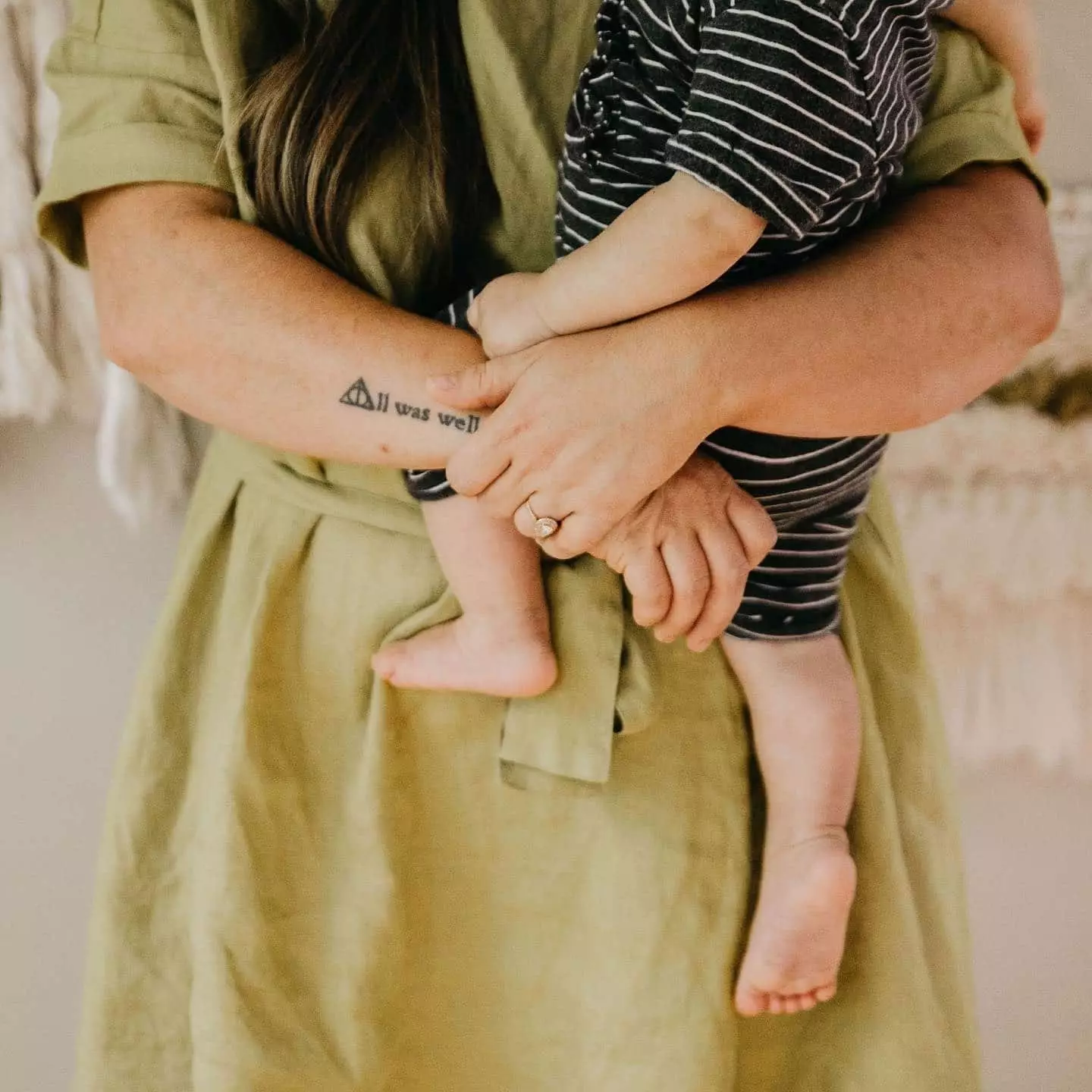The unfortunate loss of a child is something that no parent should ever have to endure. Yet, in a heartrending social media post, Ashton Zager, a fiber artist and devoted mom of two, courageously shared the sudden passing of her youngest son, Hank. Initially, Ashton believed that her son had choked on a banana muffin. It was only later confirmed by her husband, Casey Zager, that a bean had blocked Hank’s airway. While the details of the incident are profoundly tragic, Ashton’s story also serves as a critical reminder of the potential dangers lurking in everyday situations.
In her original Facebook post that has tragically resonated with countless others, Ashton described the panic and confusion that enveloped her family that fateful day. The emotional weight of the words she used demonstrated a mother’s raw grief, expressing the shock and disbelief that followed her son’s accidental choking. “My baby died tonight. Hank died,” she wrote, encapsulating a heart that was shattered. As parents, we instinctively move toward the idea that such horrors can only happen to others—those distant from our own lives. Yet, Ashton’s anguish is a glaring reminder that tragedy can strike even during simple, routine activities such as eating a snack.
The narrative paints a vivid picture of the frantic moments after Hank’s choking incident. Ashton mentions the quick call to 911, the execution of the Heimlich maneuver, and the rushed trip to the hospital. It’s a scene familiar to many parents who have had close calls with choking hazards. The fact that Hank had never lost consciousness, coupled with the three-hour effort by hospital staff to save him, only amplifies the torment of their situation. For many, these intense moments felt like they could turn into relief, yet the outcome proved agonizingly different.
Ashton’s poignant post does more than highlight a personal tragedy; it also raises critical awareness about food-related choking incidents in children. Choking remains a leading cause of unintentional death for children under five, a fact that many parents may overlook amid the glow of family dinners and birthday parties. Studies suggest that over half of choking incidents in young children are attributable to food. The situation is exacerbated by the human tendency to underestimate the risks associated with seemingly innocuous items like muffins or even pieces of fruit.
Health organizations like the American Academy of Pediatrics (AAP) provide vital guidelines to help prevent choking. These recommendations include cutting food into small, manageable pieces and being vigilant about how children eat to ensure they chew thoroughly before swallowing. However, it is not uncommon for caregivers to momentarily divert their attention, resulting in potential tragedy. Each family dynamic varies, but the shared responsibility to prioritize safety during meals remains universal.
In the aftermath of such an immense tragedy, Ashton expressed the overwhelming need for emotional support from loved ones. Her reflections shed light on a critical aspect of grieving: the importance of communal mourning. She was not only sharing her story; she was inviting others to join her in facing this monumental loss. “Our people are here. Taking care of us,” she shared, emphasizing the need for connection amidst despair. Surrounding oneself with strong support from family and friends is crucial when coping with the deepest of sorrows.
The expression of pain coupled with an understanding of the human condition makes Ashton’s words relatable to any parent. It’s a reminder that mourning is a necessary process but can feel isolating at times. The call to community—seeking solace from others—serves as a testament to our innate desire to connect and share burdens in life’s darkest moments.
As we reflect on Ashton’s heart-rending story, it becomes clear that there are significant lessons for parents and caregivers. First, it is imperative to foster an acute awareness of potential choking hazards in children’s diets. Additionally, education about safe eating practices can empower parents to take preventive measures. Lastly, Ashton’s honesty about her grief highlights the importance of opening up a dialogue around loss and community support.
While the tragic loss of Hank Zager is an unimaginable sorrow for his family, it serves as a profound reminder of the fragility of life, particularly for young children. It calls on all parents to remain vigilant, attentive, and aware of the potential dangers present in our daily lives, ensuring that children can thrive and be safe while enjoying their childhood.

